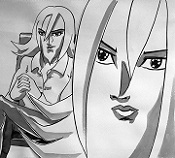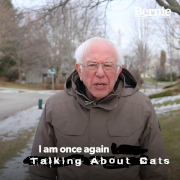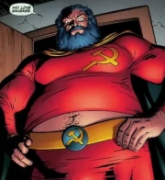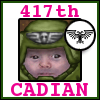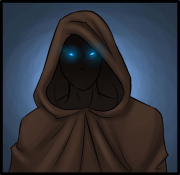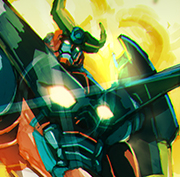|
Darwinism posted:I'm talking about a movie where people other than the ruling class and their murderhobo friends get to have mechanical agency, where the people writing the setting of the 'movie' realize that they're the ones creating and that they have responsibility for the things that they repeat. Nothing explicitly ties fantasy heroes to class though, and heroes have never been the sole driving force of social changes (beyond dethroning wizard-kings and poo poo.) Capricious gods, fates, or rulers typically fill that role and aren't portrayed as good. Heroes are just as frequently temporarily-embarassed royalty as they are meagre children of farmers. If you're going to tell an adventure story you focus on the adventurers, and I feel like you're confusing agency and focus. There's certainly room for a game about the adventure of bringing positive societal change through a gradual progress - but most people just want to be the hero, kill the monsters, get the treasures, then put the game aside until next week.
|
|
|
|

|
| # ? May 23, 2024 11:13 |
People rag on Tolkien but even Tolkien put the narrative focus and glory on a member of the petit bourgeois and his working-class companion instead of one of the several kings or angel-equivalents running around.moths posted:If you're going to tell an adventure story you focus on the adventurers, and I feel like you're confusing agency and focus. There's certainly room for a game about the adventure of bringing positive societal change through a gradual progress - but most people just want to be the hero, kill the monsters, get the treasures, then put the game aside until next week. Like in universe most games of D&D would look more like Ryuutama than anything if you just zoomed in on a randomly chosen hour of time. "You travel 3 days to the scene of the attack - ah, gnolls!" The fight with the gnolls takes 3 hours in real life, in universe it was three minutes (and would have been 90 seconds if we didn't decide to chase that one with the weird hat).
|
|
|
|
|
And walking can be the most dangerous thing you do each day.
|
|
|
|
Nessus posted:Like in universe most games of D&D would look more like Ryuutama than anything if you just zoomed in on a randomly chosen hour of time. "You travel 3 days to the scene of the attack - ah, gnolls!" The fight with the gnolls takes 3 hours in real life, in universe it was three minutes (and would have been 90 seconds if we didn't decide to chase that one with the weird hat). You always chase the one with the weird hat.
|
|
|
|
it's almost as though the thread is edging towards a conclusion that wish-fulfillment heroic fantasy is maybe kind of unhealthy and a pretty wrong way of understanding people and life and how things change and get better let me tell you about my new RPG wherin each player roleplays a popular democratic political movement and we engender societal change through a semi-collaborative process of exchanges of ideas against a backdrop of toxic national myths and regressive social fallacies
|
|
|
|
moths posted:Nothing explicitly ties fantasy heroes to class though, and heroes have never been the sole driving force of social changes (beyond dethroning wizard-kings and poo poo.) Capricious gods, fates, or rulers typically fill that role and aren't portrayed as good. Heroes are just as frequently temporarily-embarassed royalty as they are meagre children of farmers. I know that it's not explicit, but it is extremely implicit when 'important' people are likely to have gobs of the class levels that the game pretends is a hallmark of Being Special And Good, considering only 'heroic' adventurers tend to get these things. And, yeah, that's exactly what I'm talking about. I think it's wrong to think that we can just turn our brains off and enjoy a medium where people, 'be the hero, kill the monsters, get the treasures," without it impacting us. Who gets to be the default 'hero' type matters, who the 'monsters' are matters, the 'treasures' that you're getting matter. Not thinking about these things has absolutely not helped things change for the better, so maybe it's time to deconstruct that poo poo a bit more and question WHY it is that Great Man theory is largely how we engage with the game world and if we can move past that kind of shittiness and still enjoy our hobby (we can)
|
|
|
|
BetterWeirdthanDead posted:And walking can be the most dangerous thing you do each day. Nothing matches the palpable sense of fear that an experienced party of 40k RPG players feel whenever they encounter a set of stairs.
|
|
|
|
Nessus posted:Based on my time in open-ended RP communities I actually think there is a huge and underserved marked for what I suppose you could call slice of life, status-quo stuff-- the stuff that is often glossed over in tabletop games for the sensible reason of "it's a little boring at best, compared to dramatic action" but which seems to both have a great allure for many players and which also has value of creating a contrast against which the big splashy moments actually resolve. Is this the part where we all start playing exclusively Chuubo's? If not, can it be?
|
|
|
|
LuiCypher posted:Nothing matches the palpable sense of fear that an experienced party of 40k RPG players feel whenever they encounter a set of stairs. I've seen this as a passing reference a couple of times, what's up with 40K RPGs and stairs? Is it just that Space Marines are the size of fridges and four times heavier? Monokeros deAstris posted:Is this the part where we all start playing exclusively Chuubo's? Chuubo's is rad and I support this. Also your name/title combination.
|
|
|
|
Darwinism posted:I know that it's not explicit, but it is extremely implicit when 'important' people are likely to have gobs of the class levels that the game pretends is a hallmark of Being Special And Good, considering only 'heroic' adventurers tend to get these things. Player Characters are built differently than NPCs because they have more "screentime." The game isn't crypto-signaling that elites and betters exist IRL. they're Player Characters because a player is playing them. It's the only character a player is running, so there's more granularity and "power." The DM might be running dozens or hundreds of characters. Fleshing each of them out would be utterly pointless. Does the blacksmith have hopes, dreams, fears, and aspirations? Sure. Are they relevant to the party's quest to Troll Mountain? Probably not. If it's a game about the Troll Mountain adventure, we probably don't learn much about that blacksmith. Darwinism posted:And, yeah, that's exactly what I'm talking about. I think it's wrong to think that we can just turn our brains off and enjoy a medium where people, 'be the hero, kill the monsters, get the treasures," without it impacting us. Who gets to be the default 'hero' type matters, who the 'monsters' are matters, the 'treasures' that you're getting matter. Not thinking about these things has absolutely not helped things change for the better, so maybe it's time to deconstruct that poo poo a bit more and question WHY it is that Great Man theory is largely how we engage with the game world and if we can move past that kind of shittiness and still enjoy our hobby (we can) Conversely, thinking about these things doesn't really improve anything either. And Great Man doesn't really apply when you're talking about fiction. Great Man theory IS a fiction, specifically that history is driven by great men and those who rally behind them. But heroics and legends have always been akin to these. I'd venture that the Great Man theory has more to do with mythologizing the past to put it more in the framework of fable than vice versa. Casting real figures in the roles of heroes for political or cultural reasons is as old as storytelling. And there's legit nothing wrong with engaging fantasy through that lens as long as eveyone understands that it's fiction.
|
|
|
|
Omnicrom posted:I've seen this as a passing reference a couple of times, what's up with 40K RPGs and stairs? Is it just that Space Marines are the size of fridges and four times heavier? The original falling rules as written are outlandishly lethal. You take 1d10+1 damage per meter fallen, and armor doesn't help. Normal humans have fewer than 10 wounds (hit points) and have - at best - a toughness bonus (soak) of 4, so a one-meter fall (remember - this is about three feet) has a very good chance of sending you straight into criticals. A fall of two meters has a decent chance to kill you (especially if you fall on your head), and three or more (remember - three meters is around 10 feet) will probably kill you. And, if we're going by the impact critical tables, will do so by pulverizing your arm/leg/head clean off in a rather gory fashion. Space Marines only have marginally more protection. While they have nearly 20 wounds and a toughness bonus of around 6 or 8 (meaning that falls of just one meter are inconvenient, but might still hurt), larger falls - like say, being pushed down a flight of stairs - can still kill you outright. There is a 'up to your GM' catch all by saying that the GM is free to modify the damage based on ambient conditions (e.g., low gravity), but in your typically falling situation 1d10+1 per meter is what you're going to use. LuiCypher fucked around with this message at 20:56 on Aug 20, 2019 |
|
|
|
moths posted:Player Characters are built differently than NPCs because they have more "screentime." The game isn't crypto-signaling that elites and betters exist IRL. they're Player Characters because a player is playing them. It's the only character a player is running, so there's more granularity and "power." I... don't know what you're arguing here. My point isn't that PCs are bad because they're 'better,' it's that the game is, intentionally or not, repeating Great Man theory 1:1 a lot of the time and that is not a good thing to do unexamined. People better at things than others existing is not the issue, framing it as coming from inherent superiority is. Eberron, for example, avoids tons of these pitfalls despite being done first in 3E where everyone IS built the same, because PCs (and PC-analogues, ELMINSTER) aren't positioned as the most important parts of the setting by right of their existence. And all it took was actually thinking about things a little bit. moths posted:The DM might be running dozens or hundreds of characters. Fleshing each of them out would be utterly pointless. Does the blacksmith have hopes, dreams, fears, and aspirations? Sure. Are they relevant to the party's quest to Troll Mountain? Probably not. If it's a game about the Troll Mountain adventure, we probably don't learn much about that blacksmith. Again, it's not about literally everyone being a fully realized character. It is about thinking who your realized characters are and if you're accidentally echoing lovely, exclusionary narratives or not. moths posted:Conversely, thinking about these things doesn't really improve anything either. And Great Man doesn't really apply when you're talking about fiction. Great Man theory IS a fiction, specifically that history is driven by great men and those who rally behind them. But heroics and legends have always been akin to these. I am struggling with this take. How doesn't it improve anything? How will a lack of discourse lead to anything at all? Can you walk me through that? Also please take me through why it doesn't apply when talking about works of fiction like... Yeah. Great Man theory is, objectively, a lie. So are tons of things that people write up make-believe stories to justify. How's that invalidate it here? moths posted:I'd venture that the Great Man theory has more to do with mythologizing the past to put it more in the framework of fable than vice versa. Casting real figures in the roles of heroes for political or cultural reasons is as old as storytelling. I think this is an objectively wrong hot take. We can see, in the world today, how plenty of people sincerely believe in Great Man theory (even if they don't know the term) and try to force it to apply. Choose any major populist figure, for example. Are these people just being put into the framework of fable? Weird, I thought that it was a conscious effort to consolidate power and authority. moths posted:And there's legit nothing wrong with engaging fantasy through that lens as long as eveyone understands that it's fiction. How're they supposed to do that if no one's thinking about things? How are you guaranteeing understanding while also saying, "Look, just don't put too much thought into it." Like everything I'm speaking against isn't like... malign influences we should painfully excise from every last corner of our hobby, but it's absolutely something we should be able to look at and say, "Hahaha wow, yeah today we're playing Imperialist Adventures, people," rather than having the idea that you're Heroic People Doing Heroics as you slaughter that whole goblin tribe because they're in a mine the local count wants to exploit. Darwinism fucked around with this message at 21:12 on Aug 20, 2019 |
|
|
|
The traditions of myth, legend, and storytelling predates Great Man and the mindset which buys into it is one is comforted by having history to conform to the framework of legend. Great Man theory exists because of a psychological need to squish abstracts into a tidy box, not because of an elitist movement. In fantasy gaming, you're also emulating the traditions of heroes and legends - but until you wrench and extrapolate the clearing of Troll Mountain into a commentary on colonial powers, it's just bashing archetypes into each other as numbers going down. Heroic people doing heroic things is just part of humankind's social traditions and imagination. Applying the concept of heroes to history and current events is a misguided (but incredibly common) practice, there's nothing inherently wrong or harmful with the concept of Heroes in fiction. They often embody traits that are desirable for a culture to emulate - what virtues are exalted and what vices are reviled.
|
|
|
Leperflesh posted:it's almost as though the thread is edging towards a conclusion that wish-fulfillment heroic fantasy is maybe kind of unhealthy and a pretty wrong way of understanding people and life and how things change and get better Jokes aside I think that it is possible to engage with this stuff and have fun, but it should be done with some knowing thought. Some of the savor of adventure comes from having the thing you're adventuring from, which in a lot of D&D-adjacent stuff gets ignored, hence "murderhobos" etc. Darwinism posted:Great Man theory is, objectively, a lie. I hear this a lot, and I agree in the sense that history is not a stage for the Ubermensch to frolic upon, but sometimes this seems to be exclusive of the impact that individual or small group decisions can have on history. While these can be exaggerated, sometimes they legitimately aren't. If Lee hadn't gotten reckless at Gettysburg, the war might have gone on longer - perhaps long enough for Lincoln to lose the election, and for the South to break away. Or for a more positive angle, George Washington talked down some Continental Army officers from an uprising whose results we cannot easily guess. (Might've been better, might've been worse.) If these examples are parochial, blame my college curriculum, but perhaps you will get the illustration. How does this run against the "Great Man" theory? To bring it back to trad gamery, it seems to me that it is reasonable to say: The player characters (game genre permitting) are, or can be, the people who make these pivotal calls, even if they will inevitably be embedded in a matrix of nuance and social relations, however abstracted.
|
|
|
|
|
The existence of highly influential individuals is not controversial: it's the ignoring of (or active denial of) how collections of people move history. Especially how improvements in people's quality of life are mostly factors not of presidents or great scientists or whatever, but through the effort of countless anonymous parents, teachers, workers, etc. Also, that a lot of those highly influential people were women.
|
|
|
|
moths posted:The traditions of myth, legend, and storytelling predates Great Man and the mindset which buys into it is one is comforted by having history to conform to the framework of legend. Great Man theory exists because of a psychological need to squish abstracts into a tidy box, not because of an elitist movement. I don't think you understand what I'm getting at. I saying that D&D views the tradition of myth, legend, and storytelling specifically through the lens of Great Man theory. Just telling me that myths existed before it doesn't mean anything, and I'm confused by that. Like, the important figures in the vast majority of D&D works are literally Great Men type figures. The way the mechanics work set up a world where Great Man theory is actually true. This does not seem to be accidental. It does line up with the way lots of myths are told, sure, but it also lines directly up with lots of 20th century colonialist prejudices and, weirdly enough, those things are also liked and portrayed as natural by lots of people in the hobby, especially earlier. So I'm not buying into the innocence of D&D as just trying to emulate myths, not even a little bit. moths posted:In fantasy gaming, you're also emulating the traditions of heroes and legends - but until you wrench and extrapolate the clearing of Troll Mountain into a commentary on colonial powers, it's just bashing archetypes into each other as numbers going down. It is utterly mind-boggling to me that you see it as having to 'wrench' it out some kind colonialist message about murdering tons of 'savage' sapients so that your own side can own the resources. Like, this poo poo is inherited right from Gary "I will quote the 'Nits make lice' guy in relation to Paladins" Gygax and all the other people that thought similarly. This poo poo isn't subtext, it isn't wrenched or extrapolated or teased out, it's literally right there on the surface. moths posted:Heroic people doing heroic things is just part of humankind's social traditions and imagination. Applying the concept of heroes to history and current events is a misguided (but incredibly common) practice, there's nothing inherently wrong or harmful with the concept of Heroes in fiction. They often embody traits that are desirable for a culture to emulate - what virtues are exalted and what vices are reviled. D&D, and a lot of TTRPGs, have a lovely set of basic assumptions about the world. That's the argument. Why do you keep defending the existence of heroes like that's what's being questioned?
|
|
|
|
E: I'm tired and that was a lovely thing to post, forget it.
The Deleter fucked around with this message at 23:32 on Aug 20, 2019 |
|
|
|
Thinking that D&D is anything besides a colonial narrative writ large and repeated ad nauseum is a failure to grasp what exactly the mechanics are saying, as well as the cultural legacy of Gygax’s regressive views that have been copied and reiterated until they have become nerd scripture.
|
|
|
|
|
Darwinism posted:I don't think you understand what I'm getting at. I saying that D&D views the tradition of myth, legend, and storytelling specifically through the lens of Great Man theory. Just telling me that myths existed before it doesn't mean anything, and I'm confused by that. Like, the important figures in the vast majority of D&D works are literally Great Men type figures. I think this is the disconnect. You can't view the tradition of storytelling through GMT because GMT is essentially an application of those traditions to historical events. "Great Men" become Heroes, or more appropriately: pivotal figures are mythologized into Great Men and placed into the framework of the culture's familiar legends. GMT twists historical events to make them fit the narrative of legend and casts people into the role of heroes and villains. And while that sucks, it is not actully an indictment of the concept of heroes, legends, or villains. But while accepting the concept of Great Men leads to a misleading and harmful view of history, the concept of Heroes doesn't. In a fantasy setting, you don't have Great Men - you have Heroes. It's a creative tradition that go back to the earliest people entertaining each other aound a fire. It's accepted that the heroes don't exist. You seem to be insisting that fantasy heroes are an extension of Great Men, and I'm saying that's not necessarily true. Heroes fighting monsters predates colonialism. Story can be a metaphor, and often is, but it doesn't always need to always be. Fantasy gaming has roots in ancient legends and stories, but those have clearly been eclipsed by our modern fictionalization of history.
|
|
|
|
moths posted:I think this is the disconnect. You can't view the tradition of storytelling through GMT because GMT is essentially an application of those traditions to historical events. "Great Men" become Heroes, or more appropriately: pivotal figures are mythologized into Great Men and placed into the framework of the culture's familiar legends. But in a lot of the fictional universes of D&D it often just straight-up says, "Yes, Great Men make all the most momentous decisions and it is Right and Good that they should do so." It... sort of mimics mythic storytelling, you're right, but that's absolutely not the only thing it's doing. TTRPGs aren't only about heroes, how these heroic things are framed absolutely matters. And it just so happens that D&D 'heroics' are often framed a loooot like the noble colonizers fighting those savage injuns. And one of the key people who framed this as the correct way to play used that as a literal example for why Paladins would be a-okay in exterminating 'the enemy.' The average 'heroic' act that 'heroes' do in D&D is murdering lots, and lots, and lots of thinking beings. Like... defending the concept of mythic storytelling feels like it's missing the entire point. edit: Clarifying about settings: Forgotten Realms, Dragonlance, and Dark Sun are full on GMT, I feel, for various reasons. I... don't actually remember Greyhawk that great. Planescape is sorta immutable because you're unlikely to ever be powerful enough to challenge the Lady or end the Blood War or whatever. Eberron is, as stated, a very purposeful subversion. Darwinism fucked around with this message at 00:36 on Aug 21, 2019 |
|
|
|
Also like, the narratives of D&D are being told by contemporary people in a contemporary context. We can’t view those stories in the same way that we view pre-modern stories for pre-modern people.
|
|
|
|
|
Murderhoboing is the default mode that people tend to notice and criticize, but I think a lot of folks are at least somewhat aware of the problems with that. Much less examined are narratives in which the heroes are tasked with defeating a villain, with the implication being that villainy can only be thwarted by heroes. E.g., bad guys are never beaten by, say, the competent action of police, or especially by the community exercising its capacity to exert social pressure to bring about change. Or when characters are supposed to retrieve and use a powerful mcguffin, with the implication being that the only way to solve big problems is by appealing to magic to solve things for you - or perhaps by proxy, appealing to some previous, perhaps now-dead hero who made solutions possible for you buy making a mcguffin. That's understandable, of course, when the goal of the game is for the players to get to play as heroes, and to imagine and engage with fantasy tropes about magic swords in stones or genie lamps or whatever. Nonetheless, these tropes can reinforce false or harmful worldviews, such as for example that if you're not a hero, you are basically helpless or at best serve a minor function by supporting the actual heroes, whoever they might be; or maybe you need to win the lottery in order to join the elites and get to have any autonomy in your life; or the poisonous nostalgia that things were better in the past and only by reclaiming it, as symbolized by uncovering ancient artifacts, can we hope to reclaim security or goodness etc. When I've run D&D games in the past I've tried to push more for narratives in which the PCs' adventures fit into a cultural milieu in which they are doing something equally as valuable (but not more so) than people who participate in society by, say, growing food or repairing shoes. That is, people around the characters may be appreciative of their contributions, but they don't expect to have the townsfolk throw them a parade just because they explored the nearby ruins and killed a giant bug or some zombies. That's their job, they're paid well for it, and that's sufficient. Well, to be honest, that's more something I started to push for in the last ten or fifteen years; before that I was not really examining the assumptions in my game of choice so much as just engaging in normal power-fantasy poo poo. The last D&D game I ran on SA was based on using only humans, and only character classes from the Primals book (4E), and it was explicitly a coming-of-age story in which the characters are tasked with going out and doing something worth bragging about, in order to come home and prove themselves worthy of belonging to the upper of the two classes in their society. The youthful characters knew they needed to do something worthy, not just kill some intelligent creatures and take their poo poo; and also that everyone else in their society in the upper class had to have done something that the spirits would judge worthy as well. At the same time, the players understood that we were portraying a society with a fundamentally unfair rift between the haves and the have-nots, one based on values that us modern folk might find alien or grossly unfair. And the fantasy elements were at the forefront; you could literally commune with spirits to understand what they wanted of you, and also to get their help. The players understood that they had freedom to choose to act within or not within the expectations of their society, and also to make or not make self-sacrifices to support one another. I can't speak for the players, but to me at least, this was an interesting way of having fun playing some D&D while having a refreshingly different set of expectations for character, adventure, and campaign goals. So it's certainly possible to use D&D systems and frameworks without unthinkingly accepting false premises about the role of heroes in society. I'm sure a lot of folks posting and reading this thread do so. But that doesn't excuse D&D and other games like it from their built-in prejudices and false assumptions, nor does it automatically mean those built-in problems aren't really problems. Leperflesh fucked around with this message at 01:17 on Aug 21, 2019 |
|
|
|
LuiCypher posted:Crossposted from Murphy's Rules Thanks! Also the thought of tipping a Space Marine down some stairs and them dropping dead is making me titter.
|
|
|
|
gradenko_2000 posted:IIRC there was a section in the D&D 3E DMG that was like "what is the difference between an ability check and a saving throw?" and the answer was "nothing, really, except perhaps the assumption of an active or passive voice from one against the other" and I've long thought about a simplification of the system to just Fort/Ref/Will as the core mechanic for (almost) everything. I'm currently getting ready to start running a Fallout game for my Pathfinder group as a relief from dense mechanics. Using Tiny Wastelands with a few modifiers, and it's incredibly freeing to use a system whose entire mechanics are 'roll 2d6, advantage adds 1d6, disadvantage subtracts 1d6, traits can give you advantage in different situations excluding explicitly combat'.
|
|
|
|
moths posted:I think this is the disconnect. You can't view the tradition of storytelling through GMT because GMT is essentially an application of those traditions to historical events. "Great Men" become Heroes, or more appropriately: pivotal figures are mythologized into Great Men and placed into the framework of the culture's familiar legends. I think the criticism is directed at the way dnd view heroes but it doesn't have to be the only way to view fantasy heroes. From what I gather from KoDP and 6 Ages, in Glorantha the heroes are part of a community, there are social threads binding everyone. Most of us can DM dnd games were the PCs are not detached murderhobbos but is not really supported in the rules, you don't get massive clerical spells by climbing up the ranks in your religion, you get them because individually you become stronger in your faith/closer to your god, the social rank (being named archpriest, for example) comes afterwards if at all
|
|
|
|
Pacho posted:I think the criticism is directed at the way dnd view heroes but it doesn't have to be the only way to view fantasy heroes. From what I gather from KoDP and 6 Ages, in Glorantha the heroes are part of a community, there are social threads binding everyone. Most of us can DM dnd games were the PCs are not detached murderhobbos but is not really supported in the rules, you don't get massive clerical spells by climbing up the ranks in your religion, you get them because individually you become stronger in your faith/closer to your god, the social rank (being named archpriest, for example) comes afterwards if at all I don't remember which old D&D rules had it but definitely some of them had explicit titles tied to your character level. So a 1st level cleric was like an acolyte or whatever, and you absolutely were formally climbing your church's hierarchy as you gained levels. Later editions did away with that (2nd ed maybe?), and I think for some decent reasons (it constrained what characters could do, implied formal organizations for most character classes to belong to, implied or required characters to do something in-game when leveling to take on their new title/responsibility, etc. etc.) and even in the older editions it was pretty much just the titles and maybe a generic block of text mentioning them early in the PHB, with not much flavor or any rules attached. But it was there, and I think when I was first playing AD&D in the late 1980s we were aware of it and it said certain things to us about how our characters fit into their societies. I think I preferred the way Paranoia! worked though; in that game, every character formally belonged to both a secret society and a work area, and in every adventure it was expected that your character would receive (conflicting!) orders or objectives from both, on top of whatever your troubleshooting mission was. Obviously in that game the idea was to make you have to deal with insane conflicts of interest and give you hooks for accusing other characters of treason so you could shoot them; but in a co-op game this kind of engagement with the setting has its place and can work really well. There's no reason you can't have all your PCs belong to one or more formal and/or informal organizations, which serve as both resources to draw on, and sources of responsibilities, priorities, and potential conflicts for characters to engage with.
|
|
|
|
Leperflesh posted:it's almost as though the thread is edging towards a conclusion that wish-fulfillment heroic fantasy is maybe kind of unhealthy and a pretty wrong way of understanding people and life and how things change and get better *cough* https://buriedwithoutceremony.com/the-quiet-year *cough* Or the remix that is more explicitly anti-colonial https://buriedwithoutceremony.com/the-quiet-year/the-deep-forest Both from Avery Adler, who wrote Monsterhearts. counterspin fucked around with this message at 20:29 on Aug 21, 2019 |
|
|
|
Leperflesh posted:I don't remember which old D&D rules had it but definitely some of them had explicit titles tied to your character level. So a 1st level cleric was like an acolyte or whatever, and you absolutely were formally climbing your church's hierarchy as you gained levels. This was a thing with BECMI. It may have been the excuse for first level clerics having zero spells, but that may have just been pants-on-head design.
|
|
|
|
https://twitter.com/nick_kapur/status/1164233656799506433 the short version is that it's like one of those "Trigger Warning: The Game" kickstarters composed entirely of Fox News tropes about SJWs and liberals, except somehow having full production values
|
|
|
|
I haven't clicked through yet, but that's amazing (not really) given the political intent of the original game of monopoly.
|
|
|
|
It's always reeeeeaaaally telling when someone's idea of 'socialism' boils down to 'what's yours is ours' Like the scary socialism man is gonna come and take YOUR poo poo, dude reading this! Definitely not, like, Jeff Bezos' poo poo first. YOURS, MIDDLE TO LOWER CLASS PERSON!
|
|
|
|
Leperflesh posted:let me tell you about my new RPG wherin each player roleplays a popular democratic political movement and we engender societal change through a semi-collaborative process of exchanges of ideas against a backdrop of toxic national myths and regressive social fallacies yeah, Spire seems quite nifty
|
|
|
|
Darwinism posted:It's always reeeeeaaaally telling when someone's idea of 'socialism' boils down to 'what's yours is ours' america lmao
|
|
|
|
Subjunctive posted:yeah, Spire seems quite nifty This, plus you can play a drunken gangster in knight armor.
|
|
|
|
Joe Slowboat posted:This, plus you can play a drunken gangster in knight armor. Who can go on a Grail quest and crown the true king. Seriously, if you've only glanced at the Knight class, take a closer look at what the advanced moves are implying.
|
|
|
|
pendragon / spire crossover when
|
|
|
|
mllaneza posted:Who can go on a Grail quest and crown the true king. The Spire and Blades in the Dark are two of the biggest reasons I hate being the designated GM wherever I go. gently caress I wanna actually experience this poo poo as a player. Like GMing it is also amazing, don't get me wrong, but a lot of those playbooks sound amazing to play.
|
|
|
|
mllaneza posted:Who can go on a Grail quest and crown the true king. Oh, I'm well aware. I just wanted to point out you can play fun, hero-style (if... messy) characters in Spire, a game about taking part in a mass movement with a pretty strong sense of politics.
|
|
|
|
I got to play two Spire games at Gencon that turned out to be a sort of mini-campain, so I played in both as Greasy Rope Bondage Drow Batman. In the first one, we stole a bunch of explosives and stashed them in train hell without a hitch. In the second one, we hijacked the Last Hell Train out from underneath the nose of the Hell Train cult, and then rammed it and the aforementioned explosives into Oppressive rear end in a top hat High Elf Super-Versailles, opening the place wide open to the horrors of Train Hell. Grease Batman was the only one who made it out of the second one unscathed. isa good game, is what I'm saying. Haystack fucked around with this message at 06:07 on Aug 22, 2019 |
|
|
|

|
| # ? May 23, 2024 11:13 |
|
gradenko_2000 posted:the short version is that it's like one of those "Trigger Warning: The Game" kickstarters composed entirely of Fox News tropes about SJWs and liberals, except somehow having full production values The only thing that really surprises me about this is that a big company like Hasbro isn't even pretending to straddle the line and is just going to put this piece of naked propaganda out, without so much as a Sean Hannity license or something to deflect association to the licensor. In addition to what you'd expect, though, it's got some "inspired" strokes, like how it attacks voting as a petty and superficial act, and how it has both personal and communal money pools, but events where you pay taxes or redistribute wealth remove money from play instead of funneling it into the communal pool. Paying taxes drains the communal pool specifically! They can't even get their own distorted nightmare socialism straight.
|
|
|













